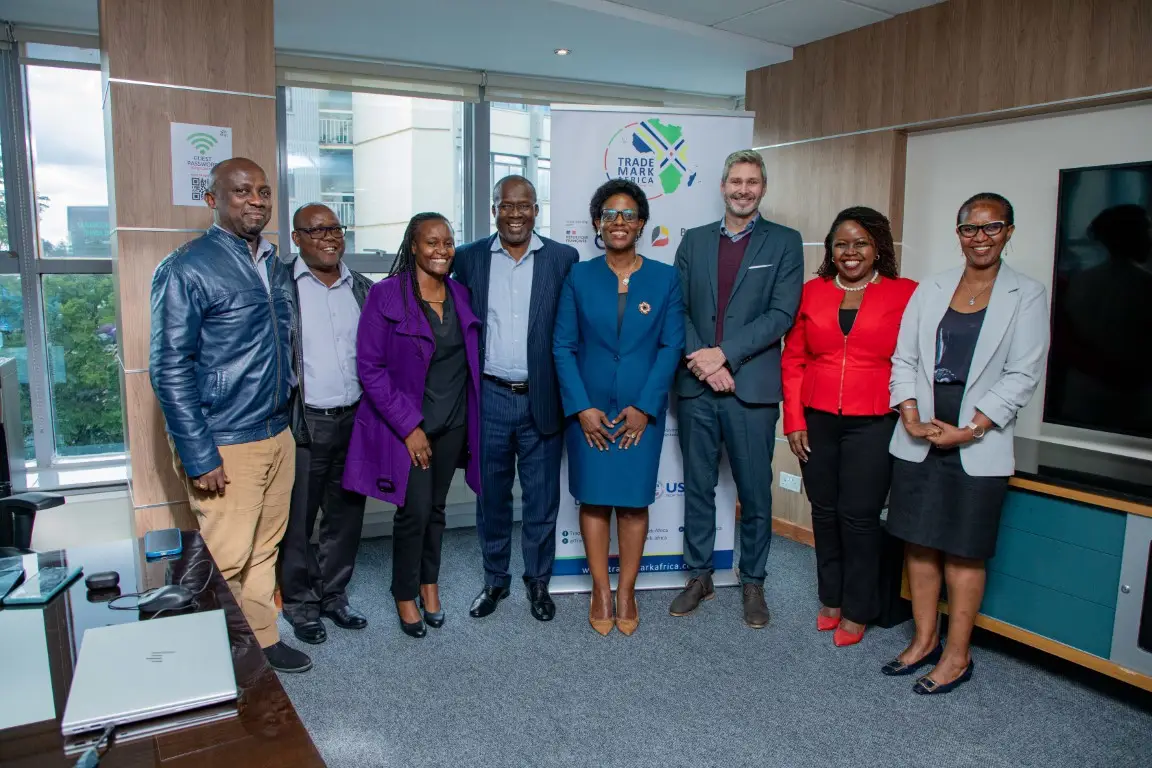In a strategic meeting aimed at bolstering regional integration and economic growth, Ms. Annette Ssemuwemba Mutaawe, the Acting Secretary General of the East African Community (EAC) Secretariat met with leadership from TradeMark Africa (TMA), led by CEO Dave Beer. The discussion centred the commitment of both organisations to tackle regional trade barriers, enhance infrastructure and promote sustainable economic practices across East Africa.
Breaking Down Barriers: The Fight Against Non-Tariff Barriers (NTBs)
A major topic of discussion was the progress in eliminating Non-Tariff Barriers (NTBs). These barriers have long imposed substantial costs on the region by slowing trade and increasing transaction expenses. A 2023 report by the EAC Regional Meeting Committee highlighted the economic impact of NTBs and estimated this at around $16.7 million. Resultantly, the EAC has prioritised addressing these barriers to enhance economic efficiency across borders. During the Regional NTB Monitoring Committee meeting held in early May 2024, four out of ten outstanding NTBs were resolved, marking a clear path to smoother trade.
The mechanisms for identifying, reporting, and resolution NTBs are being upgraded to include SMS reporting tools, which will integrate with the regional mobile application. This upgrade will significantly improve access for small business traders, enabling them to navigate trade regulations more effectively. TMA’s technological and programming initiatives is crucial to the success of these efforts.
Enhancing Trade Facilitation: Focus on Infrastructure and Awareness
Trade facilitation remains a priority, with TMA encouraged to support cross learning through high-level ministerial visits to successful projects such as One Stop Border Posts and raising awareness about the various EAC trade regimes. Ms Ssemuwemba spotlighted the growth opportunities in South Sudan, a rapidly evolving trade environment, where TMA and other trade development partners involvement could significantly impact the fledgling small businesses; this in addition to supporting integrated border management frameworks at South Sudan’s Nimule border and supporting domestication of the EAC trade and Customs programmes. South Sudan acceded to the EAC Treaty on 15 April 2016 and become a full Member on 15 August, 2016.
Empowering the Future: Social Sector Initiatives for Youth and Women
Empowering women and youth remain at the forefront of EAC and TMA’s efforts for sustainable and inclusive trade practices. The EAC is dedicated to integrating these crucial groups into trade policy-making processes. TMA’s existing partnerships, including those with Rwanda and the African Continental Free Trade Area (AfCFTA), are providing substantial support to vulnerable groups and SMEs, particularly in the fishing industry, highlighting the importance of inclusive economic growth.

Building Capacities and Infrastructure for Tomorrow
Continued capacity building is essential for empowering stakeholders within the trade ecosystem and enhancing trade competencies across EAC member states. Collaborative projects such as One-Stop Border Posts (OSBP) and various infrastructure initiatives in countries like Burundi, South Sudan, DRC, and Somaliland are crucial. An upcoming infrastructure summit in Juba this November, supported significantly by the European Union, will focus on developing smart borders and corridors to enhance trade efficiency.
Completing operationalization of the EAC fully fledged Single Customs Territory
EAC has made significant effort in implementing the single customs territory, but more is required to fully operationalise it. Efforts are being intensified towards this end especially on mechanisms of moving to smart and no stop borders, a centralised administration of customs and the harmonisation of domestic taxes within the EAC. This initiative aims to establish a fully-fledged customs union that will simplify trade processes and enhance economic integration across the region.
Promotion of the COMESA-EAC-SADC Tripartite Capacity Building Programme
The two leaders spotlighted significant progress under the COMESA-EAC-SADC Tripartite Capacity Building Programme. However, to start the implementation of the Tripartite Free Trade Area (TFTA), the three ratifications must be fast-tracked. The TFTA is a critical milestone towards rapid implementation of the AfCFTA. TMA’s proactive engagement in these areas is vital for achieving the EAC’s objectives of deeper regional integration and sustainable economic development.


